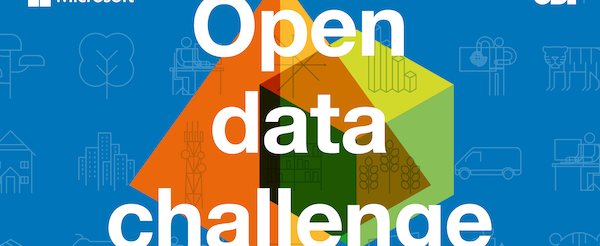
We are delighted to announce our judging panel for the Education Open Data Challenge.
- Anthony Salcito, Vice President of Worldwide Education, Microsoft
- Dr Jeni Tennison, Vice President and Chief Strategic Adviser, Open Data Institute
- Professor Rose Luckin, Professor of Learner Centred Design, University College London
- Dr Silvia Montoya, UIS Director, UNESCO
- Dirk Van Damme, Head of the Innovation and Measuring Progress Division (IMEP), OECD
Anthony Salcito, Vice President of Worldwide Education, Microsoft
<dl id="attachment_12517"> <dt></dt> </dl>

<dd>Anthony Salcito leads the worldwide execution of Microsoft’s vision for education, working to help empower educators and inspire students to achieve more. He aims to transform the way we learn with the support of the best technology to help build critical skills for the modern, global workplace.</dd> <dd></dd> <dd>In his previous post as general manager of education in the United States, he helped launch the company’s cornerstone education programs. He was also at the center of Microsoft’s involvement in the creation of the School of the Future – a pioneering partnership with the School District of Philadelphia and now the first of many Microsoft Showcase Schools around the world.</dd> <dd></dd> <dd>He has helped author a book on Education Transformation which serves as a reference guide for schools looking to drive innovation to enhance student outcomes.</dd> <dd></dd>
“The power of the cloud and the emergence of AI has created the potential to optimize data to drive real impact in education and better support the mission of educators and institutions to prepare every student to achieve more. We need to celebrate exemplars to drive real change and help institutions, educators and students learn from others and bring data from insight to action.”
Dr Jeni Tennison, Vice President and Chief Strategic Adviser, Open Data Institute
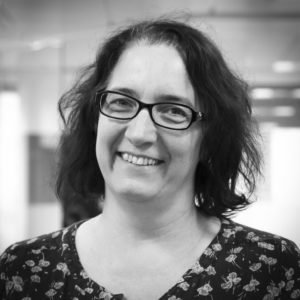
Jeni Tennison is Vice President and Chief Strategy Adviser at the Open Data Institute. She gained a PhD in AI from the University of Nottingham, then worked as an independent consultant, specialising in open data publishing and consumption, before joining the ODI as Technical Director in 2012, becoming CEO in 2016, and Vice President in 2020.
She served on the W3C’s Technical Architecture Group from 2011 to 2015 and co-chaired the W3C’s CSV on the Web Working Group. She also sits on the Advisory Board for the Open Contracting Partnership; the Board of the Global Partnership for Sustainable Development Data; the UK’s Health Tech Advisory Board; and advises the Board of OpenUK.
“The ongoing pandemic has forced the education sector globally into an unprecedented situation. This Challenge will look to stimulate the exploration of new uses for data to support the sector, outside the boundaries of the organisations that hold it. I’m looking forward to hearing about the innovative and exciting ideas that the teams have developed.”
Professor Rose Luckin, Professor of Learner Centred Design, University College London
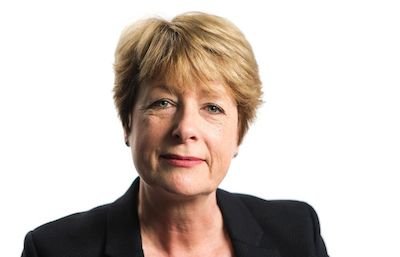
Rosemary Luckin is Professor of Learner Centred Design at UCL Knowledge Lab. Her research involves blending theories from the learning sciences with techniques from Artificial Intelligence.
She is author of Machine Learning and Human Intelligence: the future of education in the 21st century (2018); director of EDUCATE Ventures Research Limited, a London accelerator for educational technology start-ups; president of the International Society for AI in Education; co-founder of the Institute for Ethical AI in Education; member of the UK Office for Students Horizon Scanning panel; adviser to the Topol review into the NHS workforce; one of the 20 most influential people in Education (Seldon List 2017).
“Everyone deserves to have a good education to help them to flourish in the world, but the inequality of digital distribution prevents many people from receiving an education. This competition will help us to understand how we can break down barriers and bring education to all”
Dr Silvia Montoya, UIS Director, UNESCO
<dl id="attachment_12515"> <dt></dt> </dl>
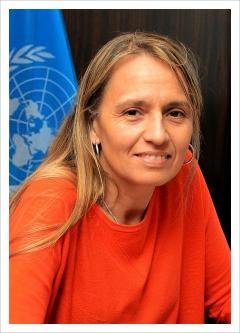
<dd>Dr Silvia Montoya, Director of the UNESCO Institute for Statistics, has extensive experience in a wide range of national and international initiatives to improve the quality, management and use of education statistics, with a specific focus on learning assessments. Since the adoption of the Sustainable Development Goals, she has taken a leadership role within the international education community by helping to build consensus around the standards, methodologies and indicators needed to measure progress towards Education 2030. Prior to joining UNESCO in 2015, she was the Director-General of Assessment and Evaluation of Education Quality at the Ministry of Education, Buenos Aires and professor/researcher at the Catholic University of Argentina.</dd>
“The Open Data Challenge brings a unique and exciting opportunity to help address urgent COVID-19 related policy needs by taking advantage of available information. I am looking forward to hearing findings about the depth of the digital divide and ideas for solutions to bridge the gap.”
Dirk Van Damme, Head of the Innovation and Measuring Progress Division (IMEP), OECD
<dl id="attachment_12516"> <dt></dt> </dl>
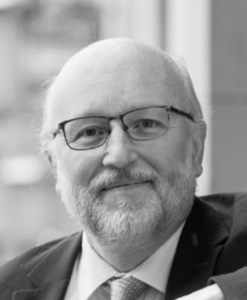
Dirk Van Damme is Senior Counsellor and Head of the IMEP division, covering the Centre for Educational Research and Innovation and the Indicators of Educational Systems programme, in the OECD Directorate for Education and Skills.
He holds a PhD in educational sciences and was a professor at Ghent University. He was a part-time professor in comparative education at the Free University of Brussels (1997-2000); visiting professor of comparative education at Seton Hall University, NJ, USA (2001-2008); general director of the Flemish Rectors’ Conference between 2000 and 2003.
He worked in educational policy development between 1992 and 2008, and served as chief of staff of Mr Frank Vandenbroucke, Flemish minister of education (2004 - 2008).
His current interests are evidence-based innovation in education, comparative analyses of educational systems, new developments in the learning sciences and knowledge management in education.
“One of the really urgent lessons from the pandemic is that many countries have to do a lot better in providing high-quality digital education solutions. We need to generate creative and innovative approaches on how to translate technological opportunities into high-quality, inclusive learning opportunities.”